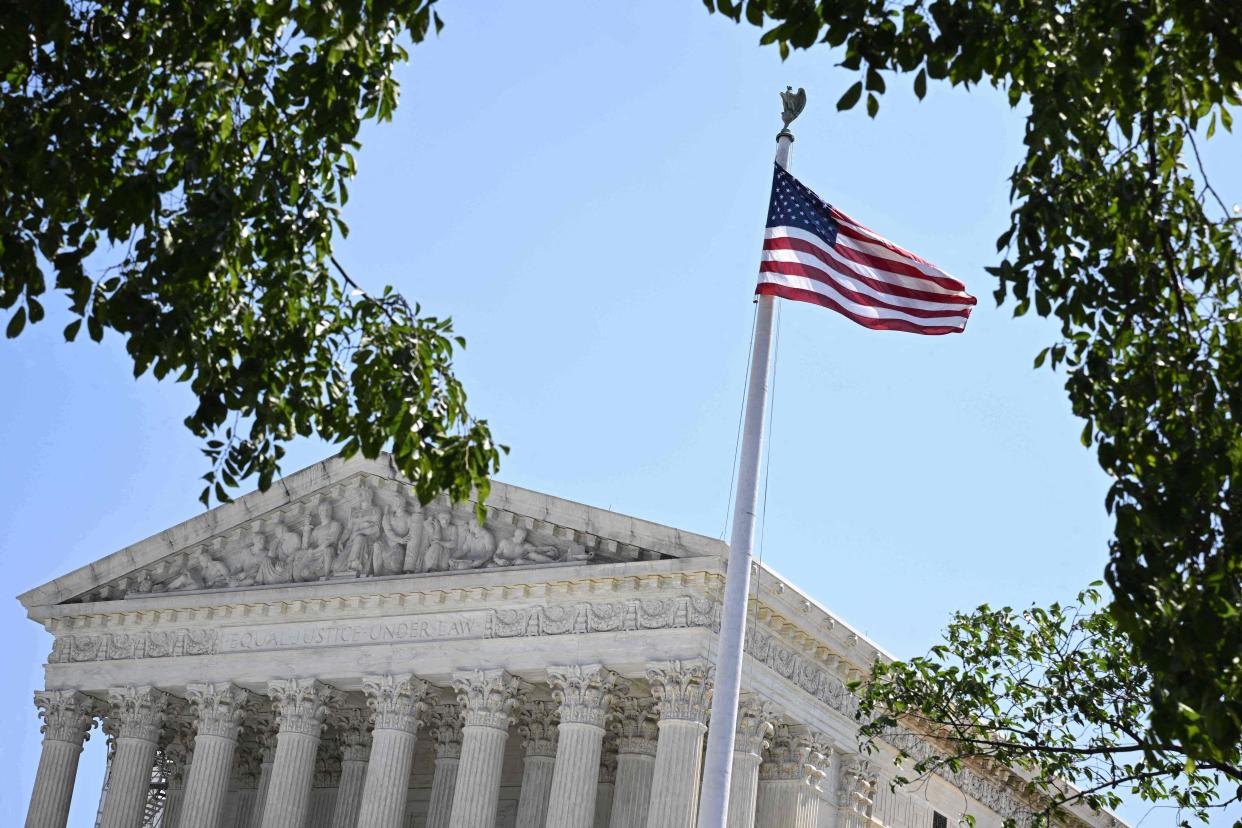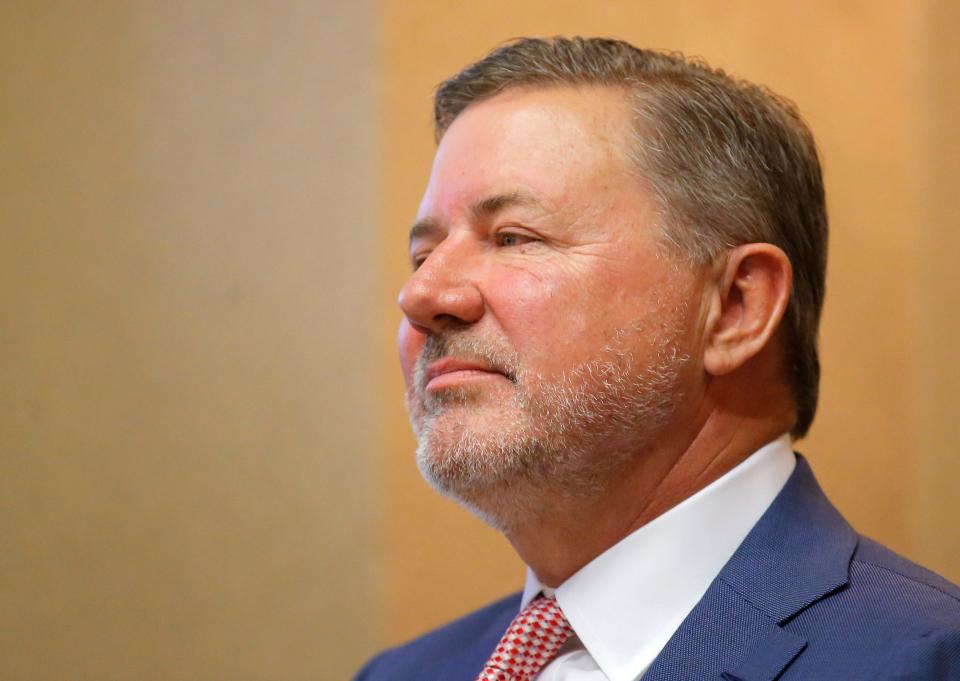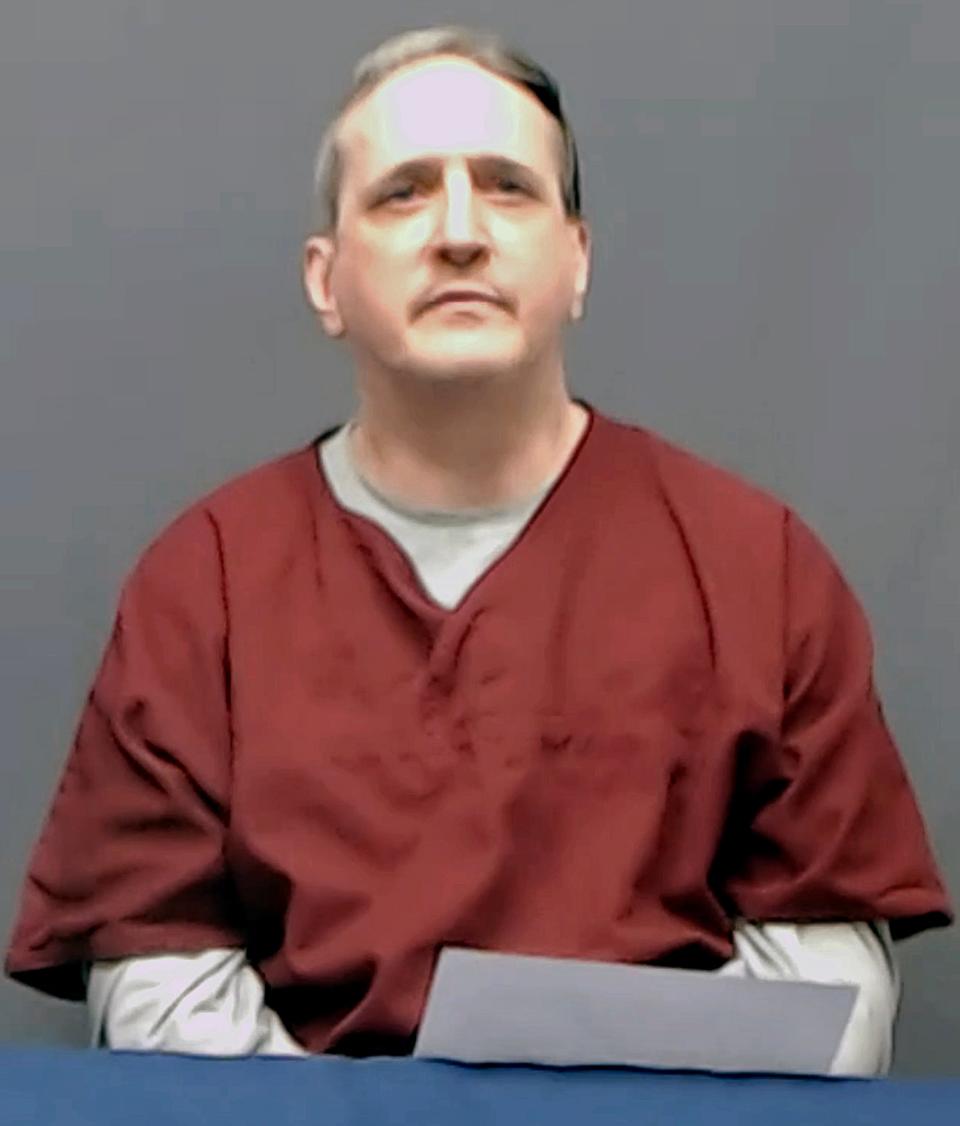AG asks US Supreme Court for new trial for death row inmate Richard Glossip

- Oops!Something went wrong.Please try again later.
Oklahoma's attorney general has told the U.S. Supreme Court it should "at the very least" grant death row inmate Richard Glossip an evidentiary hearing.
Glossip, 60, is asking the nation's top court to intervene in his case and already has won a stay of execution.
On Wednesday, Attorney General Gentner Drummond agreed again that the former motel manager's murder conviction should be set aside because of prosecutorial misconduct.
Drummond asked justices to vacate the conviction and require a new trial be set "so that justice can be done in this case."
"The State is not asking this Court to exonerate Glossip by fiat (or at all). Granting the relief that Glossip himself seeks, and in which the State joins, would not allow him to walk free," the AG told justices in a strongly worded brief.

"It would merely allow the State a chance to try to secure a conviction that comports with due process and the most basic commitments of our law."
However, in a surprise, Drummond did suggest an evidentiary hearing as an alternative if justices believe there are "genuine disputes" about what defense attorneys knew about a key witness' psychiatric condition.
Evidence from such a hearing would be used by courts to determine if another trial is really necessary.
Glossip was convicted at his 2004 retrial of the murder of his boss, Oklahoma City motel owner Barry Van Treese. Jurors chose a death sentence after agreeing he had paid to have it done.
The victim was found beaten to death in Room 102 of his motel, the Best Budget Inn, on Jan. 7, 1997.
The key witness, Justin Sneed, confessed to killing Van Treese with a baseball bat. Sneed, the motel's maintenance man, said Glossip pressured him into doing it and offered him $10,000 as payment.

The new issue in the case centers around testimony from Sneed at the retrial that he was given lithium "for some reason" in jail in 1997 after at first getting Sudafed for a cold. "I don't know why," he told jurors. "I never seen no psychiatrist or anything."
Glossip's attorneys say they now have located a sheriff's form that proves Sneed had been diagnosed in jail with bipolar disorder. Both Glossip's attorneys and the AG now contend prosecutors at the retrial knew Sneed's "innocuous explanation" for his lithium use was false.
"The conviction in this case was obtained through false testimony that the prosecution elicited but failed to correct from the most indispensable witness at Glossip’s second trial — indeed, from the person who actually delivered the fatal blows to the victim and agreed to cooperate with prosecutors to avoid facing the death penalty himself," Drummond told justices.
The Oklahoma Court of Criminal Appeals already has rejected the AG's concerns about the retrial.
In a 5-0 decision in April, the Oklahoma Court of Criminal Appeals concluded Sneed's testimony "was not clearly false."
"Sneed was more than likely in denial of his mental health disorders, but counsel did not inquire further," a judge wrote in a 23-page opinion.
Drummond on Wednesday harshly criticized the state court. "That remarkable decision is wrong on the facts and wrong on the law. It cries out for correction," he wrote.
Both of Glossip's prosecutors at the retrial deny committing any misconduct. Both also said Drummond has not talked to them personally despite repeated requests.
The new issue arose after Glossip's attorneys and an independent counsel appointed by the AG reviewed for the first time prosecutors' notes on an interview with Sneed.
Drummond told the Supreme Court those recently released records indicate prosecutors permitted the witness to hide both his psychiatric condition and the reason he was prescribed lithium.
The family of the murder victim has complained the interview notes have been misinterpreted. They contend prosecutors actually wrote down what Sneed said he had discussed with Glossip's defense team.
"There was no 'withholding' of information from the defense — the prosecutors were recording information from Sneed that the defense was itself developing!" a University of Utah law professor wrote the AG's office in May on behalf of the family.
Professor Paul Cassell on Thursday called the AG's brief "a carefully curated and misleading recounting of the facts of this case."
The victim's son, Derek Van Treese, said Thursday the continued lack of support from the attorney general was disappointing.
"Unfortunately, it appears politics have gotten in the way of the pursuit of justice," he said.
Glossip always has maintained he is innocent. He has become the state's most high-profile death row inmate because of wide support for that claim. Among his supporters are dozens of conservative Republican legislators.
Any new trial or evidentiary hearing, if granted, would be held in Oklahoma County District Court.
Drummond's stance on the case has put him at odds with a number of district attorneys across the state. The Oklahoma District Attorneys Association in June joined the victim's family in a friend-of-the-court brief that asked justices to let the execution proceed.
The execution had been set for May 18 at the Oklahoma State Penitentiary in McAlester.
This article originally appeared on Oklahoman: AG says death row inmate Richard Glossip should get new murder trial

